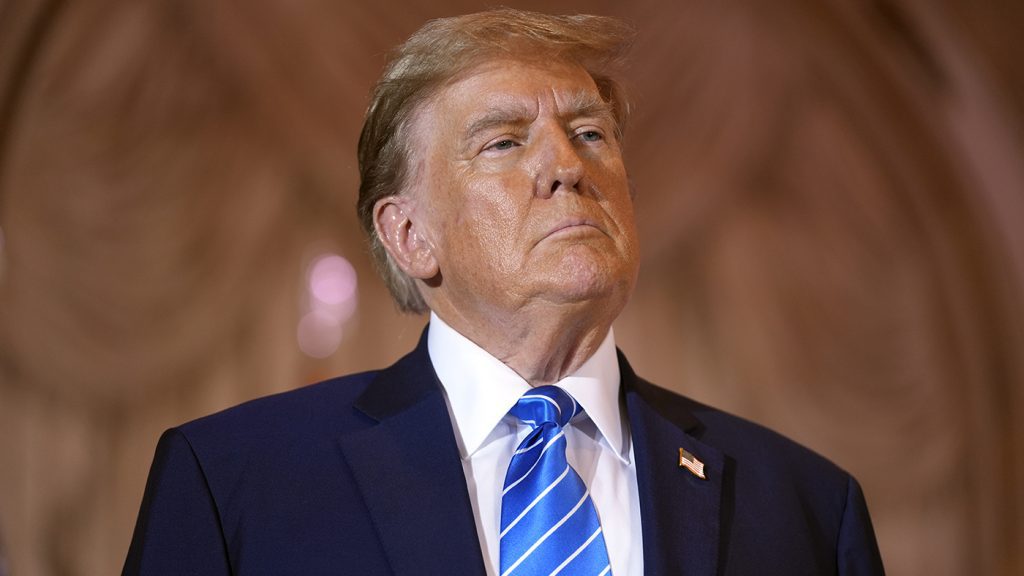Former President Trump’s lawyers stated in a court filing on Monday that he cannot get the full $464 million bond required in his New York fraud case, which a insurance broker called “a practical impossibility.”
Lawyers for Trump and his co-defendants said it was “impossible” for them to get the full amount for an appeal bond in a filing with the state’s intermediate appeals court.
“The lawyers wrote that the defendants' ongoing efforts have shown that obtaining a bond for the full amount of the judgment is ‘a practical impossibility,’ and they referred to an affidavit from an insurance broker who testified for Trump during the trial last year.
Trump’s lawyers claim they have spent a lot of time negotiating with one of the largest insurance companies in the world and have approached 30 companies to back the bond, efforts they said they were making before the judgment was given.
Trump’s attorneys wrote that the judgment amount, with interest, is over $464 million, and very few bonding companies would consider a bond of that size.
Earlier this year, Judge Arthur Engoron ordered Trump to pay a total of $454 million in a verdict. Trump is currently appealing the judgment, but the total amount will continue to gain interest during the process.
Trump’s lawyers argue that part of the problem is that the former president cannot offer property as collateral because of the massive sum. They also stated that only a few surety companies approved by the Treasury Department will underwrite a bond of this size, and many of them have internal policies limiting them to issuing bonds up to $100 million.
Additionally, Trump’s team argued that none of the sureties would accept hard assets, like real estate, as collateral, and would only accept cash or cash equivalents. They explained that the reason for this is that surety companies are not in the business of managing properties and are not willing to take the risk of having to quickly sell off real estate if a claim is made under the bond.
The lawyers wrote that the companies also generally refuse to accept property as collateral because reinsurers are reluctant to take on a bond of this size. They also maintained that such a high bond is rarely seen, and that such amounts are usually issued to the largest public companies rather than individuals and private businesses like Trump’s.
The attorneys also argue that a company, even with billions in real estate assets, would need up to $1 billion in cash or cash equivalents to cover the bond, which they do not have.
The lawyers wrote, “While it is my understanding that the Trump Organization is in a strong liquidity position, it does not have $1 billion in cash or cash equivalents.”
“As a result, for a company like The Trump Organization, which has most of its assets in real estate, obtaining a bond for $464 million is a practical impossibility,” they added.
The submission on Monday follows a decision by a federal judge approved Trump’s $91 million bond in a different civil defamation case with writer E. Jean Carroll last week. Unlike the New York fraud case, Trump was able to have an insurance company back his bond and could probably use property as security.
Legal papers show that the major insurance company Chubb supported Trump’s bond in the Carroll case, but it is not clear what money or property the former president had to offer as security.
Trump’s finances have taken a hit changed significantly spent nearly $3 million on legal consulting in January as he is involved in numerous court battles, according to records filed with the Federal Election Commission last month.
Updated 12:22 p.m.









